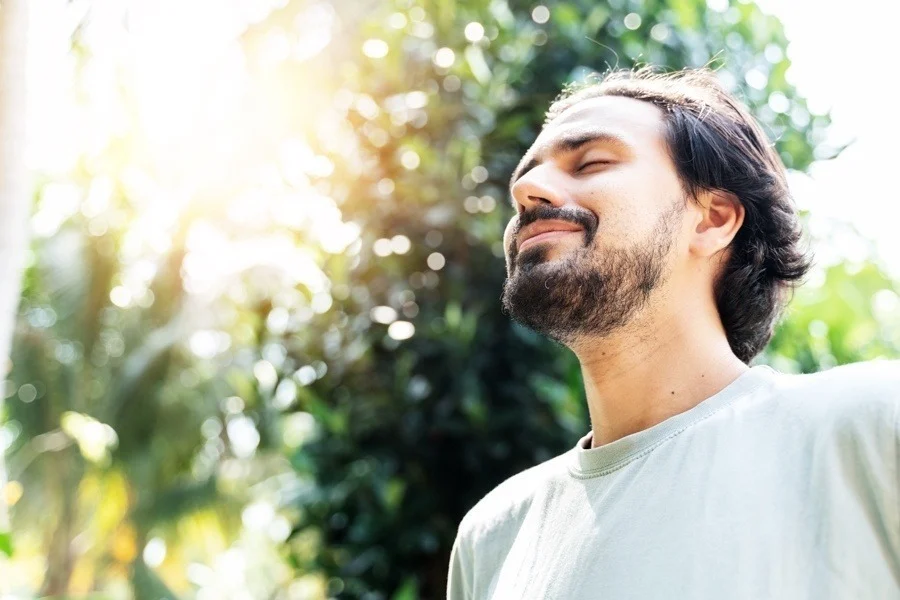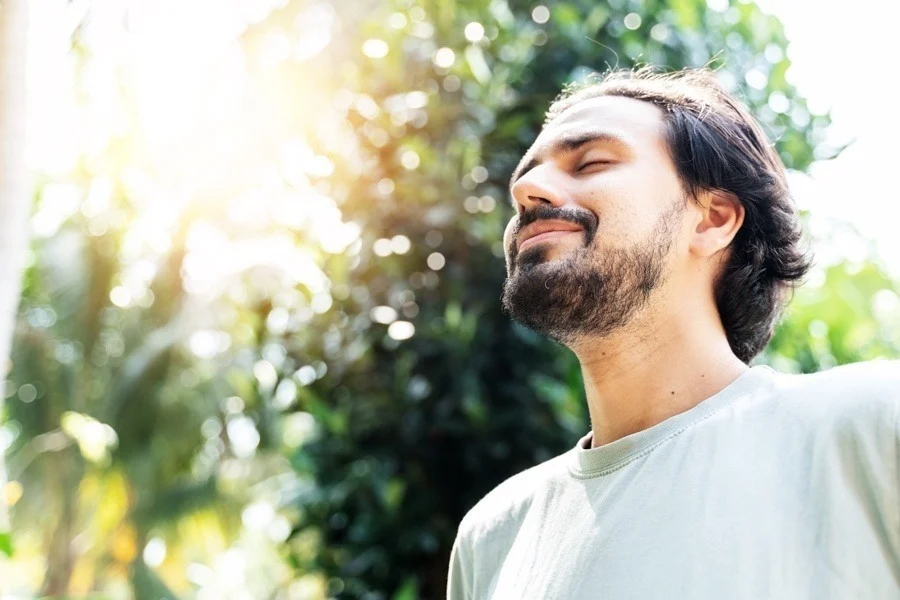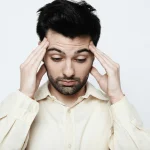Alcohol’s impact on hindering sleep patterns is well-documented. Hence, learning how to stop alcohol insomnia is a chief prerequisite for overcoming dependency. The only fruitful course of action is to add effective sleep strategies to your arsenal through therapeutic teachings. Spero Recovery’s experts provide all the preparation you need to choose and implement the right treatment-supported sleep aid tactics. Here are all the details about how alcohol causes insomnia, how to stop alcohol insomnia and natural ways to improve sleep.
What is Alcohol-Induced Insomnia?
Alcohol insomnia is defined by disrupted sleep patterns caused by drinking. This comes as a surprise to many as excessive drinking can initially cause drowsiness, but that doesn’t mean your sleep quality is better. Contrary to popular belief, alcohol is not a sleep aid, but quite the opposite. Consult the insights below for a more accurate detail of how alcohol hinders sleep cycles.
Doesn’t Alcohol Help You Sleep?
The straight answer to this is yes and no. Alcohol, when consumed in very small amounts, acts as a sedative. However, when consumed in large quantities, it has adverse brain effects, disturbing sleep cycles in several mental and physical aspects. Additionally, ingesting large quantities may induce immediate weariness, but that is only the short-term effect before the long-term sleep deprivation consequences. Specifics of those overnight consequences are covered in the section below.
How Does Alcohol Hinder Sleep?
Alcohol consumption’s neuronic impacts induce a variety of sleep impediments. Here’s a scientifically detailed overview of how alcohol disrupts sleep.
Several factors influence circadian rhythm functions such as melatonin levels, cortisol, and other natural sleep hormones. The presence of alcohol disrupts the mind’s production of melatonin hormones. Since melatonin is the primary hormone for sleep regulation, fewer of these hormones mean less sleep and further sleep pattern disruptions.
Drinking forces your vital organs to work harder to expel alcoholic toxins, including kidney and liver functions. Consequently, your body will often awake as a result of the need to urinate as your body removes these toxins. These bathroom disruptions can induce your body into a habitual pattern of waking every few hours. Other reasons for nighttime awakenings stem from the hormonal suppression previously mentioned or other mental impacts.
When you sleep, vital muscles are still at work in your airways to maintain normal breathing patterns. Alcohol relaxes these muscles to an extent that could induce or exacerbate sleep apnea, a disorder that affects breathing. This means you’ll stop breathing during the night, interrupting sleep cycles and waking you out of a dead sleep. This condition is dangerous to potentially fatal degrees if left untreated.
The dehydrative tolls of drinking on your mind have adverse effects on your thought processes even when unconscious. That’s why alcohol often causes vivid nightmares, better known as night tremors. Any alcohol-induced night tremors can be so severe that they cause you to wake up frequently throughout the night.
When you don’t dream, it means you aren’t receiving REM sleep, the deep sleep your body needs to restore energy. Correlatively, alcohol is a known inhibitor of REM sleep cycles. This means regardless of how much sleep you are receiving, you will lack the necessary REM necessary to function. In turn, lack of adequate deep sleep will take a toll on other priorities like job, family, or school obligations.
Delayed processing simply means since alcohol slows your digestive process, it takes longer for your body to cleanse alcoholic toxins. This delayed body processing is why alcohol makes you tired initially, but disrupts sleep after the fact as your body works overtime. Regardless of how tired you may be, these awakenings are likely to persist multiple times throughout the night.
Natural Tips to Improve Sleep Habits

There are certain actions and activities within your control to help aid sleep quality. All of these methods should be performed under professional therapeutic guidance.
Maintaining an active lifestyle naturally boosts natural cell production in the brain, especially those pertaining to sleep hormones. A stagnant lifestyle, on the other hand, has adverse effects on hormonal balance. To maximize sleep-related mental proactivity, our physicians have meticulous sleep-centered exercise plans to exponentially improve sleep quality. Reach out to us now to learn how to stop alcohol insomnia through natural exercise techniques.
Melatonin tablets help you fall asleep and stay asleep. While it is an over-the-counter drug, melatonin is a natural hormone you can take in tablet form. Regarding alcohol-induced sleep disturbances, these tablets help stabilize innate hormone levels for melatonin-deficient people. Before taking melatonin pills, seek doctoral consultation to ensure you possess low melatonin levels that require medication supplements.
A balanced diet provides well-rounded nutrition, restoring vital neuronic chemicals that improve sleep quality. Most people don’t know where to start with a nutrition plan. That’s why our highly-trained therapy professionals are there to chart a detailed health food plan. Our first-class nutrition knowledge can implement a dietary contingency specifically centered around bettering your quality of sleep.
Minimizing screen time before sleeping is a key component of maximizing sleep quality. That’s because blue light stimulates heightened brain activity, telling your body to stay awake. Even with phones equipped with darkened night features, light sensitivity still interacts negatively with brain regions responsible for sleep regulation. After your “wind down” time, keep your phone outside arm’s length to negate the temptation to use your phone in bed.
Our bodies are creatures of habit, adapting to our routines. Correlatively, Once you attempt to form a consistent sleep pattern, you may be surprised to find that your body’s circadian rhythm falls in line with your implemented structure. This means forcing yourself to be in bed at a consistent time each night. This method is worth trying to see if your body adapts accordingly to your schedule. Bear in mind that this should be attempted within the parameters of professional treatment and not alone.
Symptoms of Alcohol-Induced Insomnia
Insomnia deriving from moderate to excessive drinking habits doesn’t occur without evident red flags. Seek immediate addiction help if you exhibit any of the following symptoms.
Waking up out of breath or gasping for air is a sure indication of alcohol-induced insomnia. This is a red flag stemming from alcohol’s weakening effects on throat muscles that control breathing while you sleep. Any such sleep apnea conditions that arise or are exacerbated by drinking should be met with swift therapeutic action.
Intense hangovers or next-day fatigue are signs your body isn’t getting enough deep sleep. Specific next-day symptoms of alcohol insomnia are dehydration headaches, nausea, extreme tiredness, and muscle aches. If you are experiencing any of these fatigue-related characteristics the morning after drinking, you may have alcohol-based sleeping problems.
Disregarding sleep apnea, if you frequently awake throughout the night after drinking, your sleeping problems likely stem from alcohol. Reasons may include headaches, the persistent need to use the bathroom, or for no reason at all. You don’t have to suffer these persistent awakenings. Learn how to stop alcohol insomnia now by reaching out to us today.
Some people with alcohol-based sleeping difficulties toss and turn even shortly after a drinking session. Thus, having sleeping difficulties following a day or evening of drinking may derive from alcohol-induced insomnia. Individuals with this symptom will feel incapable of getting comfortable, even spending hours close-eyed without slipping into unconsciousness.
How Does Spero Recovery’s Immersive 12-Step Program Help Overcome Alcohol Addiction?
There’s nothing more naturally therapeutic than Spero’s life-changing approach. Here’s a brief outline of the many ways our 12-step program for men helps you conquer alcohol addiction.
Our uniquely personalized 12-step process instills an unmatched accountability system. Everyone involved in our programs, patient and therapeutic counselors alike, is solely devoted to your sobriety through strict accountability practices.
Accountability and withdrawal support go hand-in-hand. You can’t have one without the other. Our 12-step system thrives in helping you establish crucial support throughout your difficult withdrawal phase by providing superlative detox programs.
Most alcohol addiction sufferers keep their struggles bottled up. Spero Recovery’s AA-based program is particularly designed to emotionally and mentally alleviate you by encouraging you to open up in these sessions.
We specialize in maximizing the efficacy of holistic practices like yoga, exercise, and other meditative procedures in recovery. Our unparalleled holistic approach, aimed at alleviating anxiety and alcohol withdrawals, are life-changing processes that make rehab enjoyable.
Our 12-step programs impart crucial personalized care and support after completing addiction rehab. Thus, acting as an effective relapse prevention system to help you maintain your sobriety.
Nothing builds personal esteem and confidence better than meeting like-minded individuals who understand your struggle. These group sessions serve the dual-fold purpose of improving rehab confidence and self-esteem through forming strong bonds.

Take the First Step Towards Better Sleep and Sobriety Today
The first step towards learning how to stop alcohol insomnia and achieve full-spectrum sobriety begins by reaching out to Spero Recovery Center. We hold the key to unlocking your greatest potential in rehab and life in general. Moreover, we’ll show you the joys, pleasures, and relaxations you never knew recovery could offer you. Begin your journey now and unlock the full extent of your sobriety potential and all the lifelong memories you’ll make in our top-notch recovery center.














